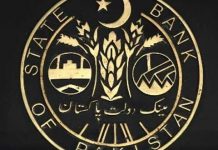Tax collection aside, making a list of more than 5 lakh citizens along with their identity card numbers public, itself seems like a last resort. It can be argued that Pakistan is way past the measures of last resort when it comes to income tax revenue, therefore any and all measures required to increase this tax net, must be taken. However the whole facade comes crashing down when the viability of the measure gets questioned.
On the 29th of April, FBR released a list of tax defaulters. Individuals who are not appearing on the active taxpayer list but are liable to file the Income Tax Return for Tax Year 2023. In a document titled the “Income Tax General Order No.1 of 2024” the FBR instructed the PTA and the telecom networks to block the access of these users to SIM cards. It was announced that these individuals will have their sims blocked until the FBR decides otherwise.
On the face of it, it sounds like a fairly simple proposition. People who do not pay their taxes, get reprimanded for their non-compliance. There was just a small problem with this plan. Neither the telcos, nor the PTA was willing to take that step.
What the FBR thought would happen
Let us first have a look at how a blockage like this will practically take place. The telecom companies are not answerable to FBR, when it comes to regulating, and hence if a ban is announced by the FBR, it has to go through relevant authorities. Here is how the chain of events follows.
First of all, the Pakistan Telecommunication Authority will have to come on board. The PTA is required by the FBR, not just to identify the SIMs held by the mentioned ID card holders but also to cross check the accuracy and the validity of the CNIC Information. The PTA would then engage a database like the Pakistan Mobile Number Portability Database (PMD) to identify the SIMs issued across various networks on one person’s ID card.

From there on it becomes fairly simple for any Mobile Network Operator to block the respective SIMs such that the re-registration against the number is also blocked, unless the regulator tells the MNO to unblock it.
It is said that where there is a will, there is a way, but if there is no will, what then?
What Actually Happened
If certain media reports are to be believed, the FBR had actually identified two million possible tax evaders, but the mobile phone companies requested that they could not block such a huge number of SIMs in one go.
When the notification with 506,671 names was issued, the telcos did not take too positively to it either. On May the second, PTCL’s spokesperson told the media that, “the company was closely monitoring the recent directives from FBR regarding blocking SIMs linked to around 0.5 million CNICs related to non-tax filers. The matter is of utmost importance to us, and we are diligently examining this order within the applicable legal and regulatory framework. Our priority is to ensure compliance with the applicable legal provisions while safeguarding the interests of the concerned consumers.”
While other Telcos refrained from commenting, an industry official on the subject of anonymity, made it clear that the FBR was trying to hide its own incompetence by doing this. He stated that the industry and the consumers in question both could go to court against the FBR because they had not followed the due procedure.
Despite obtaining the right to blocking sims, or cutting utilities of non-complying taxpayers, through the addition of clause 114b in the Income Tax Ordinance 2001, the FBR has to ensure that it sends a notice showing non-compliance, to the said consumer.
The main reason why the industry was not happy was that they were about to lose business. The initial reaction was hence a stern response. In a couple of days, the Pakistan Telecommunication Authority (PTA) itself refused to block these SIM cards on the FBR’s request. In its statement on the 4th of May, the PTA gave a host of reasons, as to why they had taken this decision. Following are the reasons put forward by the PTA:
- Jurisdiction Issue: The PTA stated that the execution of the Income Tax General Order (ITGO) did not fall within its jurisdiction, making the order have “no legal binding effect” as it was inconsistent with the applicable legal framework.
- Verification of SIM Usage: The PTA emphasised the need to verify factual issues regarding the usage of SIMs against CNICs, noting that any person may obtain eight SIMs (three data and five voice). This means that while they might have 8 sims, they cannot possibly be using all 8. Therefore, procedural steps regarding notices would need to be issued by the tax collection authority as provided in section 144-B of the Income Tax Ordinance, 2001.
- Gender Disparity in SIM Registration: The authority noted that most male users registered SIMs in their names instead of females and juveniles, with only 27 percent of SIMs registered on CNICs of females. Blocking these SIMs would deprive potential female and children subscribers of access to communication, particularly impacting their educational activities. The PTA highlighted that the order’s execution would have an adverse impact on prevailing social norms.
- Impact on Foreign Investor Confidence: One of the industries that has over the years been somewhat successful in maintaining overseas investor confidence has been the telecom industry. The PTA warned that the confidence of foreign investors in the telecom sector might be adversely impacted with such a step.
- Effect on Financial Transactions: Blocking SIMs could affect financial transactions such as online payments, remittances, online banking, and e-health activities, causing multiple issues.
Instead, the PTA recommended that instead of blocking SIMs at the first instance, the FBR should pursue other alternative modes for ensuring better compliance with filing income tax returns, such as awareness campaigns. The PTA also stated that the issue needed to be reviewed in a holistic manner after consultation with all stakeholders, including the Ministry of Information Technology and Telecom. The PTA mentioned that it had communicated to the FBR that the ITGO needed a review before its execution and had already initiated consultation with stakeholders on the subject issue.
The coming around of Telcos
The FBR wanted its newest brainwave carried out in completion while the telcos and their regulator did not seem to think too much of the idea. The two parties remained in a standstill for a few days over the matter. During this time period, a set of detailed meetings were held between the relevant stakeholders.
On the 7th of May, the telcos and the PTA, forwarded their concerns to the Ministry of IT, saying that the decision made by the FBR was made in haste and would negatively impact the already struggling telecom industry. In the letter sent to the ministry, they argued that all telecom operators were obligated to provide uninterrupted services to their customers except in the circumstances mentioned in the Telecom Act and other applicable regulations; there are no instances wherein CMOs can disconnect or block the service of any customer.
It was reported that the telcos were not willing to budge on their stance mainly because of the profitability angle. They believed that if they were to shut down 5 lakh active citizen’s sims in one go, the count of which could be anywhere between 1 million to upwards of 3 million SIMs, they would undergo massive losses.
Meanwhile the FBR remained convinced that this was a measure almost necessary for increasing the number of tax filers. Finally on the 11th of May, the telecom operators decided to give in. What conditions of the telecom operators were met, was never disclosed by either the FBR or the PTA. However, they stated that the blockage of sims would be done in batches. One thing was still clear. Some telcos were still not happy with the decision.
Following the agreement, Zong CMPak, filed a writ petition in the Islamabad High Court putting forward its concerns regarding the move by the FBR.
In the hearing, held in this regard the petitioner argued that the Constitutional amendment done to make this move legal was in fact in violation of the basic right of freedom of business granted in Article 18 of the Constitution of Pakistan. The petitioner’s lawyer argued that no legislation contrary to the fundamental rights given in the Constitution should be passed.
The government cannot get the power to block people’s mobile phone SIMs by amending the law. He noted that if more than 500,000 SIMs were blocked, there would be a loss of Rs 1 billion annually.
The Islamabad High Court then asked the respondent to furnish a response by the 27th of May. It was then reported across media houses that the Islamabad High Court had ordered a stay on the blockage of SIMs. In a later hearing the IHC Chief Justice Aamer Farooq stated that the court had not ordered a stay on the blocking of the SIMs but rather stopped the Federal Government from taking any coercive action against non-complying telcos.
It is also important to note that before this clarification came from the IHC, the FBR had already named a Joint Working Group (JWG) to implement the ITGO-1. Interestingly, the JWG had representatives from all the relevant stakeholders and companies except one, Zong CMPak. The JWG was announced on the 17th of May and Zong was supposed to present its own clarification regarding non-compliance by the 22nd March.
In an unprecedented haste, since then more than 11,000+ sims have already been blocked as claimed by the FBR and the process is expected to go on while the justice system highlights the finer points of the decision.
For vs Against
Here we revert back to our main question, what indeed is wrong with blocking the SIMs? Apart from the points already discussed above, as presented by initially non conforming telecom regulator or the petitioner (Zong), there are a host of talking points against the idea and only a few in favour. By the time the Islamabad High Court reaches a complete and objective judgement, things will be a lot clearer as to whether this will happen or not. By the looks of it, the FBR has already gotten its way and Zong, apart from being sidelined from the blockage process, will have to pull a rabbit out of its hat to overturn the court ruling. Still, Profit indulges readers on both sides of the debate, for the esteemed readers to reach a conclusion.
The case for is very simple. You default on your taxes and you pay the price. You get deprived of a very key service and until you comply with the laws of the land, you lose the privilege of using that service. The principle is simple. In fact, when looked at in context of the laws across the globe, it can be construed as a rather small price to pay.
The nuance exists in the case against the move.
When we talk about a taxpayer in Pakistan, we are not just talking about the people on the ATL. Through a barrage of direct taxes over the last 3 years, roughly all of Pakistan is paying a huge amount of taxes. Taxes that affect both rich and poor alike, milking even those who do not fall within the lowest income tax bracket.
Here is how the move is not a good one for the industry, the consumer and the FBR itself.
Issues for the industry
Apart from losing massive amounts of business overnight, Consumer Protection Regulations mandate MNOs to provide prior notice of such intentions for any suspension of service, merely that the legal defects of ITGO do not allow the telcos to carry it out immediately.
The affected individual may even seek to recover special costs, damages & losses that he/she has incurred because of the SIM card being blocked, putting the company at legal risk.
Telecom companies are one of the biggest contributors to revenue collection in the country, and before implementing such orders, certain protections or indemnities must be given to CMOs through an amendment in law to prevent adverse consequences or claims by customers.
Issues caused for the Individual
According to the collective letter shared with the IT ministry on the 7th of May, this act impacts the customers’ ability to get essential services, which have now been defined as the right to life, according to different judgements of superior courts. Is telecommunications a right to life service? In 2024, it may as well be.
While talking to Profit, prominent tax lawyer Ikram ul Haq does the following calculations that put the IGTO into perspective. He says that as of March 31, 2024, there were 192 million mobile cellular users. A large population, approximately 105 million (excluding multiple and inactive users), pays 15% adjustable advance income tax and 19.5% sales tax, yet by May 13, 2024, only 2.7 million individual income tax returns were filed, 70% of which did not pay any tax.
The majority of mobile users may not have taxable income, yet they bear the burden of unjust taxes. In contrast, most of the wealthy pay a very small portion of their actual taxable income without bothering to file income tax returns. Among the returns filed, only 100,000 individuals acknowledged a tax liability of more than 500,000 rupees.
His calculations bring in light the whole exercise as being a PR stunt if not anything else. Former Deputy Commissioner of Income Tax and former Press Secretary to the President, Mr. Qamar Bashir, in an article, calls it a move by the FBR to “milk another cow” without having to do its primary job, which is to achieve voluntary tax compliance from those with taxable income.
Issues caused for the FBR itself
One important victim is the FBR and the state itself. Blocking 506,671 SIMs means a tax revenue shortfall of at least PKR 608 million annually, to the national exchequer. Zong argues this figure to be greater than 1 billion. Here is how we reach the baseline figure.
Given the industry ARPU of PKR 280 per month, a cellular subscriber pays around PKR 100 in taxes monthly (35%) as mentioned above. Assuming every person has one active sim being used, annually these 100 rupees for 506 thousand people become Rs 608 million. Since no consumer is bound to have just one SIM, the impact is supposed to be much larger.
Another and more simpler workaround is if the targeted person uses someone else’s sim. If the highest repercussion for defaulting on tax is the blockage of your SIM and nothing more, there is no law in place that forbids a person from using a friend’s or a relative’s sim for the time being. If there is a workaround for people using a phone with blocked IMEIs (Non-PTA phones), the workaround for not having a sim in your name is much simpler. This then makes the whole exercise and the debate that came with it, an unnecessary one.
It is important to note, that currently no telecom company that operates in Pakistan, is managerially controlled from within Pakistan. Therefore to keep the industry lucrative, the industry needs to keep on appealing to the overseas investor. This means that keeping the investor happy is part and parcel of keeping the industry flourishing within the country. In a climate where 2 companies have already left in the last decade and telecom revenues from their mainstream services have already taken a hit, the state needs to facilitate the sector more than it pushes them away.























